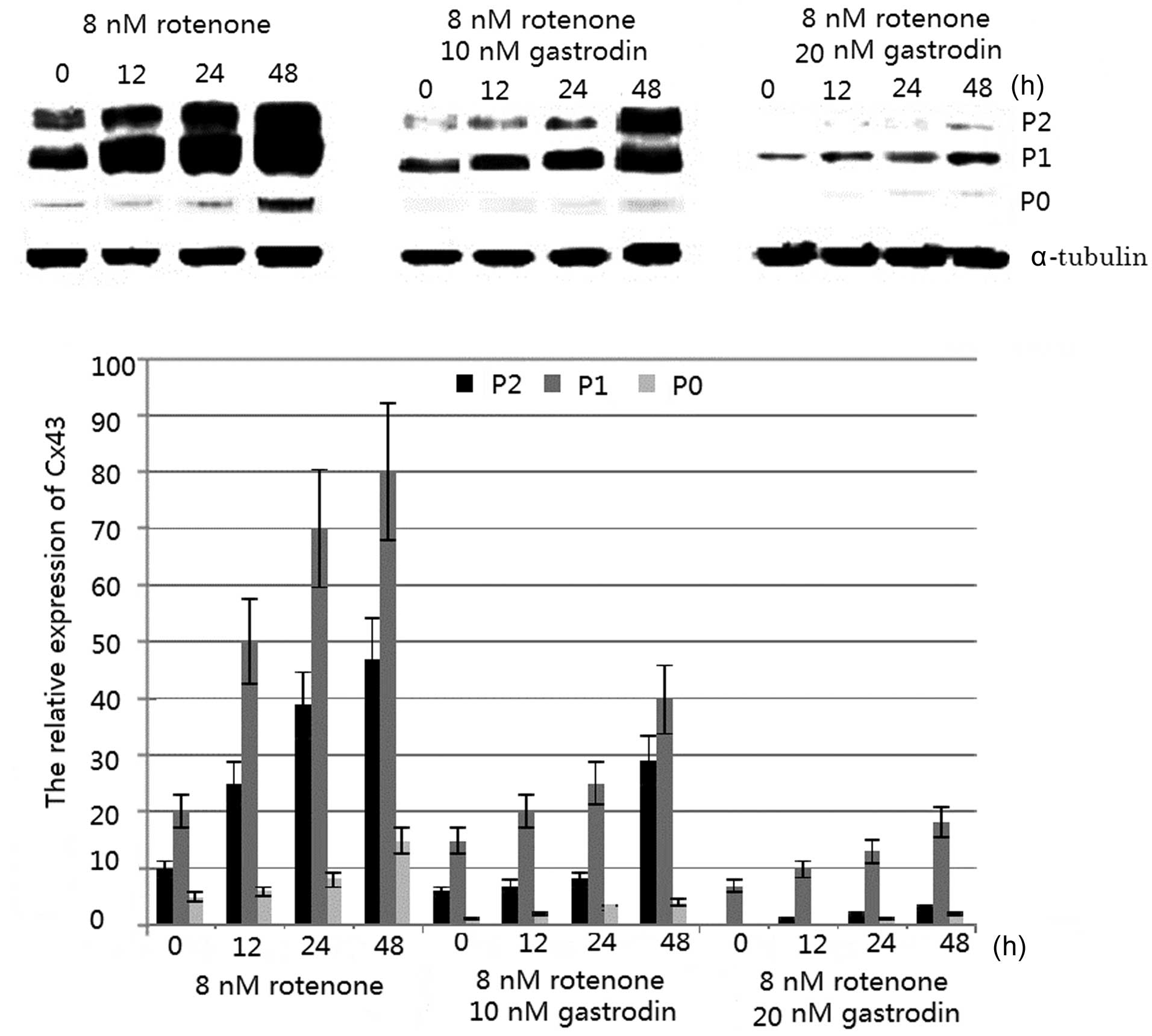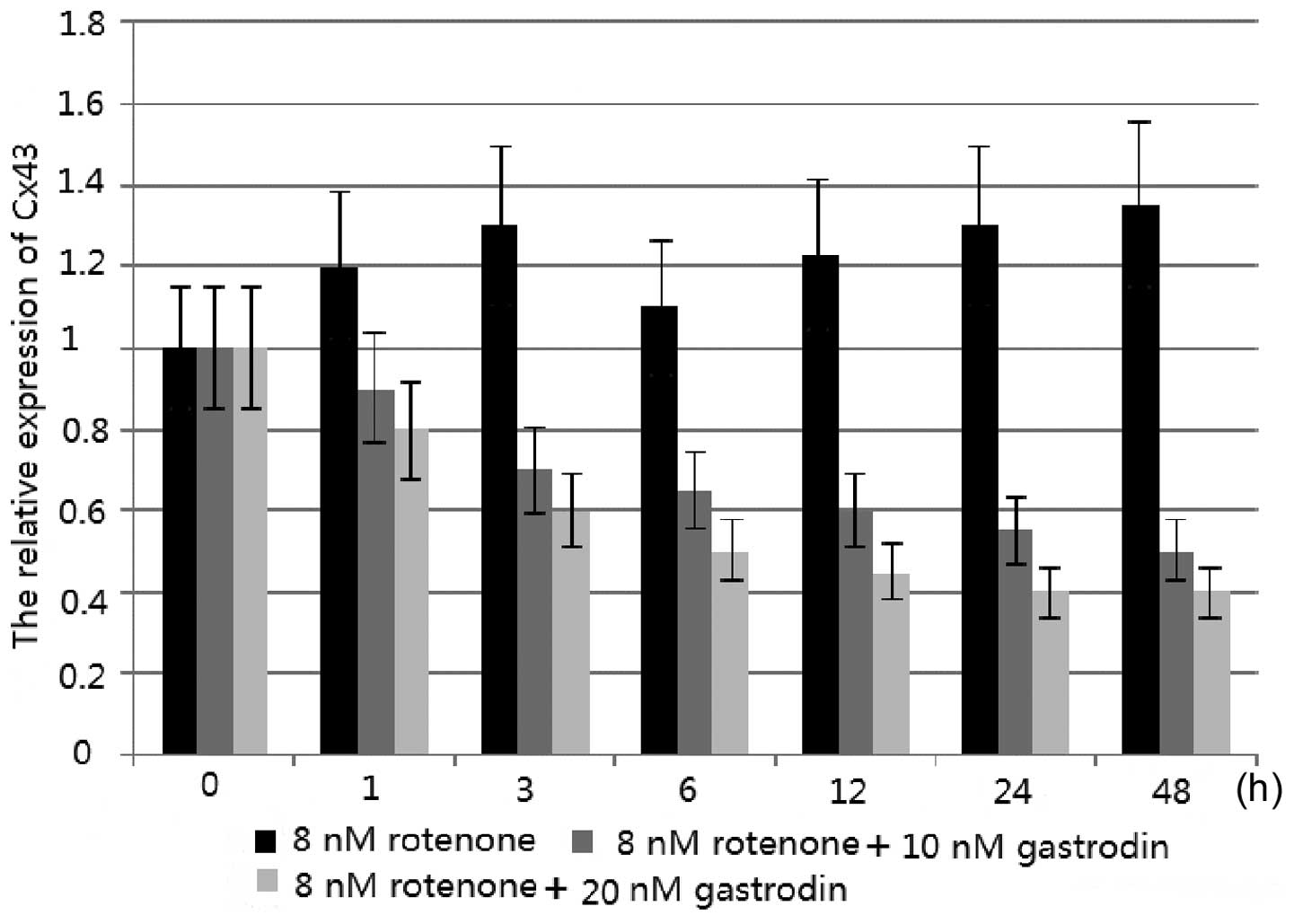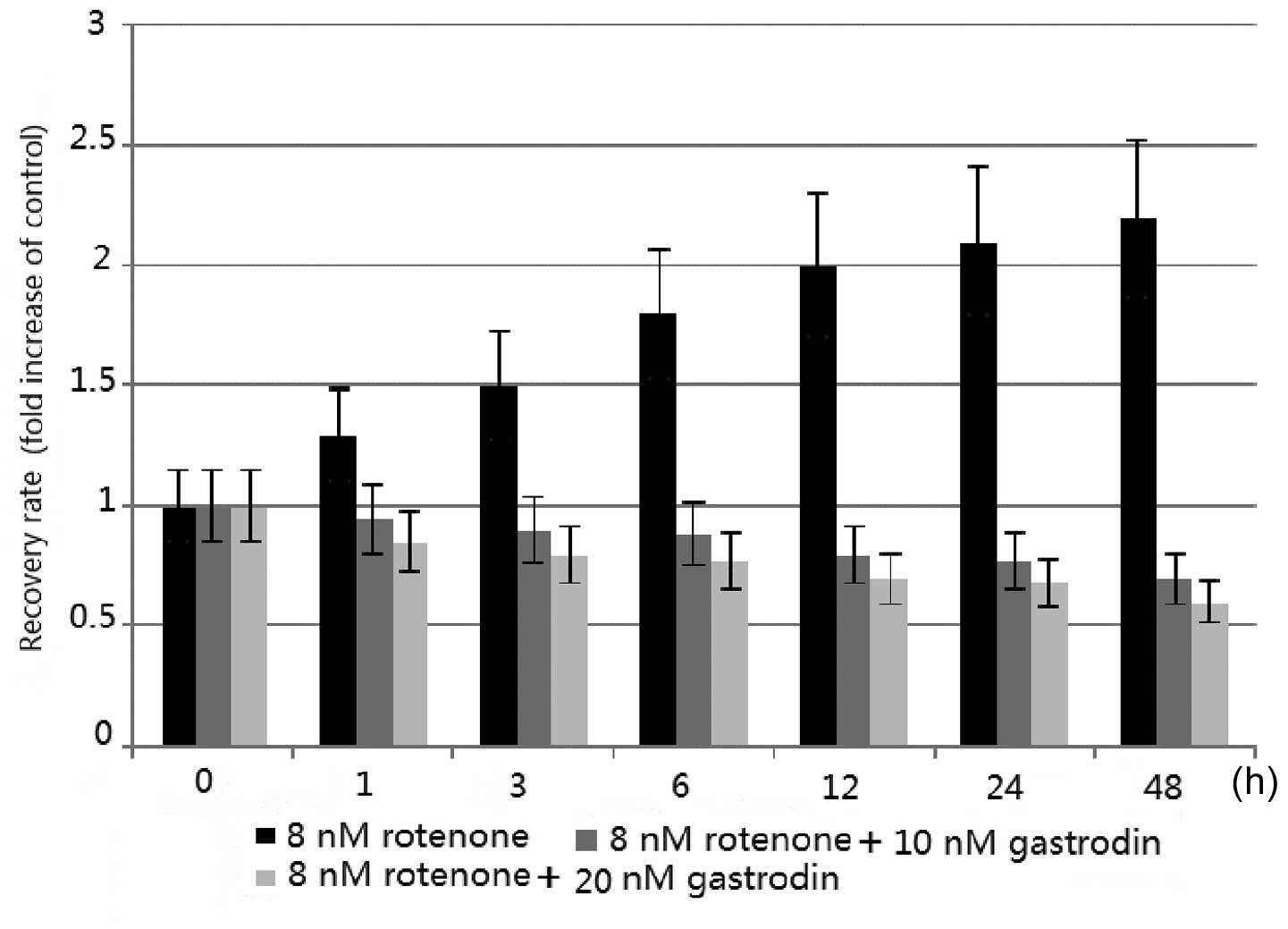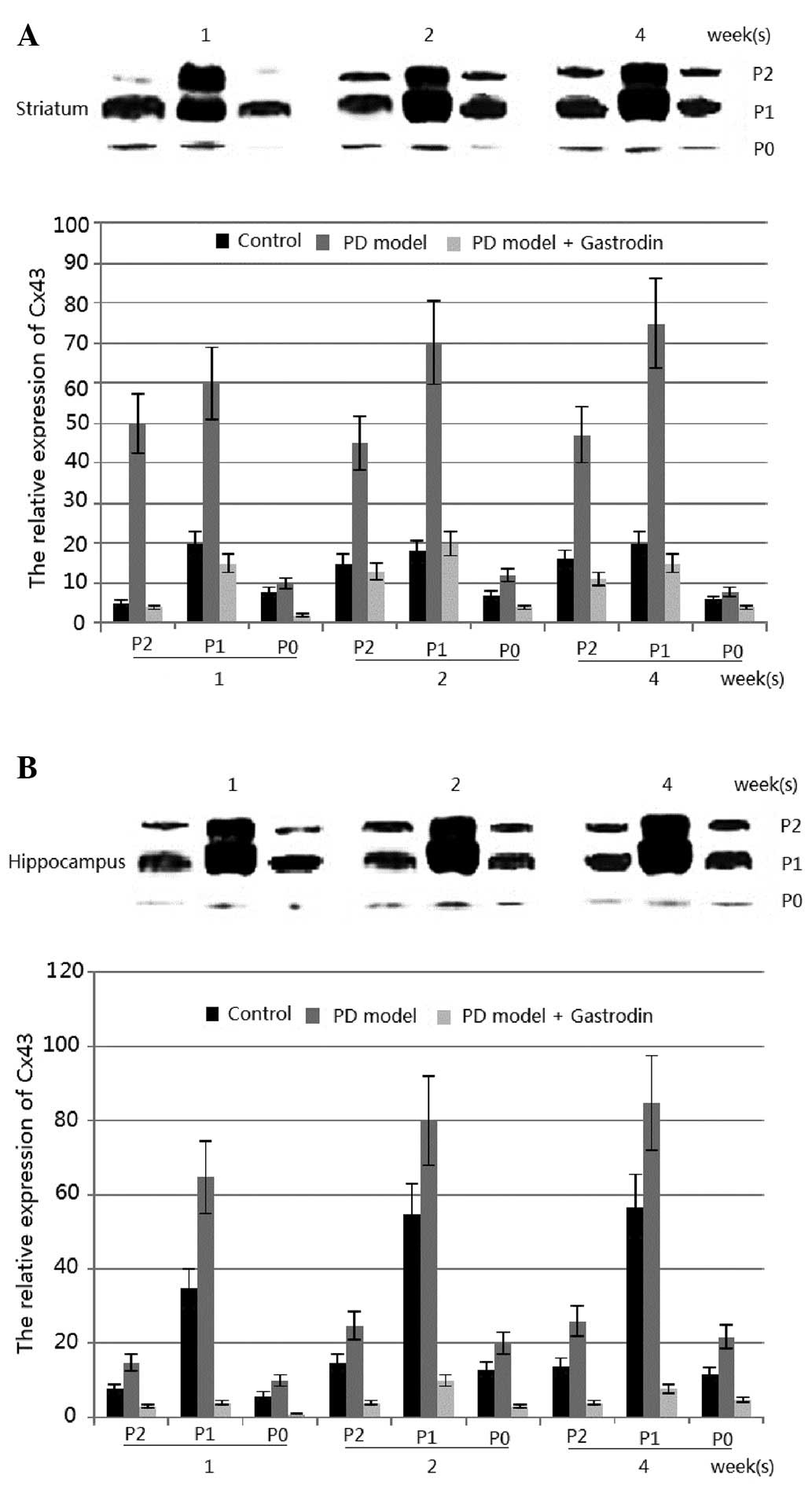|
1
|
Paisán-Ruíz C, Jain S, Evans EW, et al:
Cloning of the gene containing mutations that cause PARK8-linked
Parkinson’s disease. Neuron. 44:595–600. 2004.PubMed/NCBI
|
|
2
|
Zhang X, Lu L, Liu S, Ye W, Wu J and Zhang
X: Acetylcholinesterase deficiency decreases apoptosis in
dopaminergic neurons in the neurotoxin model of Parkinson’s
disease. Int J Biochem Cell Biol. 45:265–272. 2013.PubMed/NCBI
|
|
3
|
Salama M, Ellaithy A, Helmy B, et al:
Colchicine protects dopaminergic neurons in a rat model of
Parkinson’s disease. CNS Neurol Disord Drug Targets. 11:836–843.
2012.PubMed/NCBI
|
|
4
|
Ahn EH, Kim DW, Shin MJ, et al:
PEP-1-ribosomal protein S3 protects dopaminergic neurons in an
MPTP-induced Parkinson’s disease mouse model. Free Radic Biol Med.
55:36–45. 2013.PubMed/NCBI
|
|
5
|
Tönges L, Frank T, Tatenhorst L, et al:
Inhibition of rho kinase enhances survival of dopaminergic neurons
and attenuates axonal loss in a mouse model of Parkinson’s disease.
Brain. 135:3355–3370. 2012.PubMed/NCBI
|
|
6
|
Ali F, Stott SR and Barker RA: Stem cells
and the treatment of Parkinson’s disease. Exp Neurol. Jan
6–2013.(Epub ahead of print).
|
|
7
|
Nishimura K and Takahashi J: Therapeutic
application of stem cell technology toward the treatment of
Parkinson’s disease. Biol Pharm Bull. 36:171–175. 2013.
|
|
8
|
Kim H: Neuroprotective herbs for stroke
therapy in traditional eastern medicine. Neurol Res. 27:287–301.
2005. View Article : Google Scholar : PubMed/NCBI
|
|
9
|
Pearl PL, Drillings IM and Conry JA: Herbs
in epilepsy: evidence for efficacy, toxicity, and interactions.
Semin Pediatr Neurol. 18:203–208. 2011. View Article : Google Scholar : PubMed/NCBI
|
|
10
|
Schachter SC: Botanicals and herbs: a
traditional approach to treating epilepsy. Neurotherapeutics.
6:415–420. 2009. View Article : Google Scholar : PubMed/NCBI
|
|
11
|
Manavalan A, Ramachandran U, Sundaramurthi
H, et al: Gastrodia elata Blume (tianma) mobilizes neuro-protective
capacities. Int J Biochem Mol Biol. 3:219–241. 2012.PubMed/NCBI
|
|
12
|
Li C, Chen X, Zhang N, Song Y and Mu Y:
Gastrodin inhibits neuroinflammation in rotenone-induced
Parkinson’s disease model rats. Neural Regen Res. 7:325–331.
2012.(In Chinese).
|
|
13
|
Karuppagounder SS, Madathil KS, Pandey M,
Haobam R, Rajamma U and Mohanakumar KP: Quercetin up-regulates
mitochondrial complex-I activity to protect against programmed cell
death in rotenone model of Parkinson’s disease in rats.
Neuroscience. 236:136–148. 2013.PubMed/NCBI
|
|
14
|
Xiong N, Long X, Xiong J, et al:
Mitochondrial complex I inhibitor rotenone-induced toxicity and its
potential mechanisms in Parkinson’s disease models. Crit Rev
Toxicol. 42:613–632. 2012.
|
|
15
|
Drinkut A, Tereshchenko Y, Schulz JB, Bähr
M and Kügler S: Efficient gene therapy for Parkinson’s disease
using astrocytes as hosts for localized neurotrophic factor
delivery. Mol Ther. 20:534–543. 2012.
|
|
16
|
Hauser DN and Cookson MR: Astrocytes in
Parkinson’s disease and DJ-1. J Neurochem. 117:357–358. 2011.
|
|
17
|
Rappold PM and Tieu K: Astrocytes and
therapeutics for Parkinson’s disease. Neurotherapeutics. 7:413–423.
2010.
|
|
18
|
Rouach N and Giaume C: Connexins and gap
junctional communication in astrocytes are targets for neuroglial
interaction. Prog Brain Res. 132:203–214. 2001. View Article : Google Scholar : PubMed/NCBI
|
|
19
|
Dermietzel R, Gao Y, Scemes E, et al:
Connexin43 null mice reveal that astrocytes express multiple
connexins. Brain Res Brain Res Rev. 32:45–56. 2000. View Article : Google Scholar : PubMed/NCBI
|
|
20
|
Nagy JI and Rash JE: Connexins and gap
junctions of astrocytes and oligodendrocytes in the CNS. Brain Res
Brain Res Rev. 32:29–44. 2000. View Article : Google Scholar : PubMed/NCBI
|
|
21
|
Thompson RJ and Macvicar BA: Connexin and
pannexin hemichannels of neurons and astrocytes. Channels (Austin).
2:81–86. 2008. View Article : Google Scholar : PubMed/NCBI
|
|
22
|
Li X and Simard JM: Multiple connexins
form gap junction channels in rat basilar artery smooth muscle
cells. Circ Res. 84:1277–1284. 1999. View Article : Google Scholar : PubMed/NCBI
|
|
23
|
Kawasaki A, Hayashi T, Nakachi K, et al:
Modulation of connexin 43 in rotenone-induced model of Parkinson’s
disease. Neuroscience. 160:61–68. 2009.PubMed/NCBI
|
|
24
|
Ya-qin C, Yi-fan S, Hong C, Jian-ping W
and Jiao D: Effects of gastrodin on Cx43 expression in temporal
lobe cortex and hippocampus of pentylenetetrazole-induced epileptic
immature rats. Journal of Lanzhou University (Medical Sciences).
34:92008.
|
|
25
|
Mulcahy P, O’Doherty A, Paucard A, O’Brien
T, Kirik D and Dowd E: The behavioural and neuropathological impact
of intranigral AAV-α-synuclein is exacerbated by systemic infusion
of the Parkinson’s disease-associated pesticide, rotenone, in rats.
Behav Brain Res. 243:6–15. 2013.PubMed/NCBI
|
|
26
|
Thakur P and Nehru B: Anti-inflammatory
properties rather than anti-oxidant capability is the major
mechanism of neuroprotection by sodium salicylate in a chronic
rotenone model of Parkinson’s disease. Neuroscience. 231:420–431.
2013.PubMed/NCBI
|
|
27
|
Care IoLARCo, Animals UoL and Resources
NIoHDoR. Guide for the care and use of laboratory animals. US
Department of Health and Human Services, Public Health Service,
National Insititutes of Health; 1985
|
|
28
|
Wisniewska-Kruk J, Hoeben KA, Vogels IM,
et al: A novel co-culture model of the blood-retinal barrier based
on primary retinal endothelial cells, pericytes and astrocytes. Exp
Eye Res. 96:181–190. 2012. View Article : Google Scholar : PubMed/NCBI
|
|
29
|
Takizawa T, Gudla PR, Guo L, Lockett S and
Misteli T: Allele-specific nuclear positioning of the
monoallelically expressed astrocyte marker GFAP. Genes Dev.
22:489–498. 2008. View Article : Google Scholar : PubMed/NCBI
|
|
30
|
Kruger NJ: The Bradford method for protein
quantitation. Methods Mol Biol. 32:9–15. 1994.PubMed/NCBI
|
|
31
|
Chen VC, Gouw JW, Naus CC and Foster LJ:
Connexin multi-site phosphorylation: mass spectrometry-based
proteomics fills the gap. Biochim Biophys Acta. 1828:23–34. 2013.
View Article : Google Scholar : PubMed/NCBI
|
|
32
|
Jongen WM, Fitzgerald DJ, Asamoto M, et
al: Regulation of connexin 43-mediated gap junctional intercellular
communication by Ca2+ in mouse epidermal cells is
controlled by E-cadherin. J Cell Biol. 114:545–555. 1991.
View Article : Google Scholar : PubMed/NCBI
|
|
33
|
Baucum AJ II, Brown AM and Colbran RJ:
Differential association of postsynaptic signaling protein
complexes in striatum and hippocampus. J Neurochem. 124:490–501.
2013. View Article : Google Scholar : PubMed/NCBI
|
|
34
|
Fidalgo C, Conejo NM, González-Pardo H and
Arias JL: Functional interaction between the dorsal hippocampus and
the striatum in visual discrimination learning. J Neurosci Res.
90:715–720. 2012. View Article : Google Scholar : PubMed/NCBI
|
|
35
|
Xu X, Lu Y and Bie X: Protective effects
of gastrodin on hypoxia-induced toxicity in primary cultures of rat
cortical neurons. Planta Med. 73:650–654. 2007. View Article : Google Scholar : PubMed/NCBI
|
|
36
|
Levine AJ, Harris CR and Puzio-Kuter AM:
The interfaces between signal transduction pathways: IGF-1/mTor,
p53 and the Parkinson Disease pathway. Oncotarget. 3:1301–1307.
2012.PubMed/NCBI
|


















